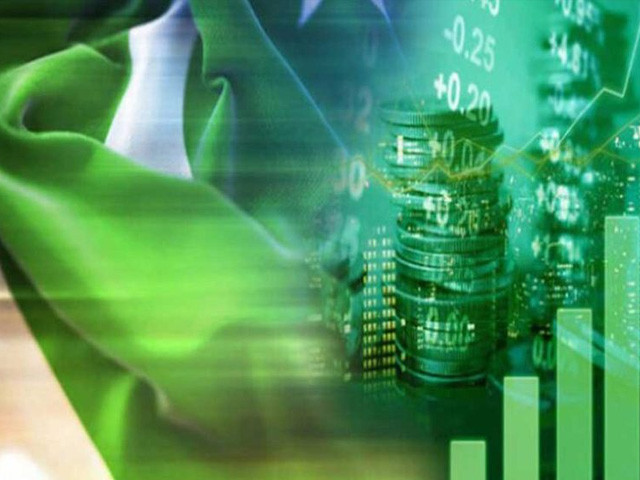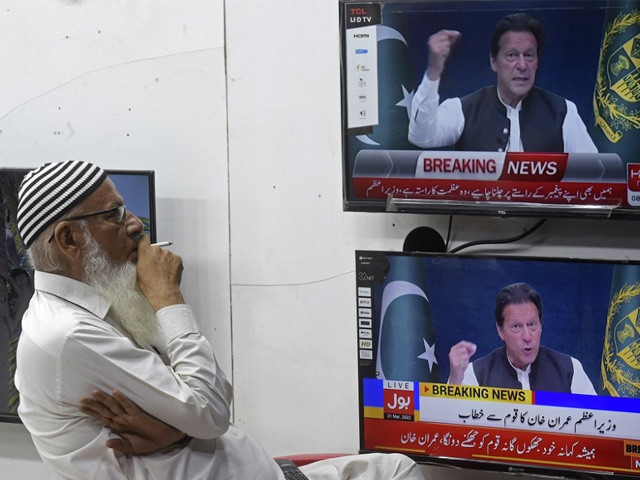
The never-ending crossroad Pakistan always finds itself in
Let's put forward some arguments to understand why Pakistan, till date, has not managed get itself out of a so-called crossroad that we find it in, time and again, economically.
The first argument is that our country lacks apparent and obvious consistency and continuity. Historically, it is interesting to witness that Pakistan has shown a Gross Domestic Product (GDP) growth rate of over five to six per cent per annum during military regimes but during the so-called “democracies”, it has hardly managed to roughly grow three to four per cent. The argument here is not that the military’s economic policies are better than the democratic ones, but that they are more stable. This, at least superficially, gives a sense of stability and continuity to the investors enough to attract them and their possible funding. On the other hand, the so-called democratic set-up consists of rotating four finance ministers along with a few Federal Board of Revenue (FBR) chiefs over only a period of three years. Every time an investor has visited a government office under a democratic regime, the investor has been welcomed by a new official, which means that the rules and processes may have changed subsequently during this transition and the investor has had to start from scratch. This is the lack of continuity I was referring to above.
The strategic vision, plan and execution needed to improve the current situation seems bleak. The only time Pakistan is said to have grown in an exemplary way was during the so-called Ayub Khan era. At that time, we had a clear strategic policy and a vision for the future. Ayub’s import-substitution scheme was indeed interesting – we would import capital goods in order to create a certain capacity in order to export consumer goods in the future. However, that scheme wasn’t allowed to roll out successfully because the cheeky merchants around him were smart enough to figure out that putting up industries will involve a lot of risk and huge capital, so they convinced him to go for a merchant-lead model of economy rather than a producer-lead one. Simply put, just import, store, and sell with less risk. That’s all.
Now, over 50 years later, currently, we don’t have enough dollars to support our imports, thanks to remittances and the teetering textile industry. Additionally, we have not paid back our debt since 1976 but we haven’t defaulted either. We are simply taking on more loans to pay off previous loans and while this is a continuous cycle, no one knows if and how we will ever break out of this terrible system.
We are cap in hand, on our knees, in front of the International Monetary Fund (IMF) asking for a few billions of dollars that come with agonies of harsh economic conditions. This is because we have never seriously thought about how to fund our imports. We need to learn from the Asian financial crisis of 1997 when some Asian economies including those of Thailand and Indonesia saw massive depreciations, dollar outflows, and interest rate hikes, and they rushed to the IMF saying that 'we can't seem to manage the situation, so for God’s sake, please help us'. Isn’t our situation similar now? We have to learn from what Thailand did there; it went for an export lead growth.
Our policies are flawed; our economic decisions are more political than economic. If something makes political sense for our politicians and helps their parties win the next elections, only then is a project given utmost attention. We prefer optics over genuine projects. For example, we spent six billion dollars to build the motorway when what we really needed to focus on was to build dams, schools, hospitals and universities. Because the motorway created more political optics than other long-term projects, that is the only project which was completed successfully. We did not build dams in 1990s; rather, we begged Chinese investors to build Independent Power Producers (IPPs) in 2013 with over 20 per cent guaranteed return on equity, on top of the dollar indexed pricing commitments.
Furthermore, our taxation system is largely regressive. That is, we tax indirectly – we tax consumption more than we tax income. Why? Because it is tougher to identify precisely the income of the masses while our FBR is not willing to do the work, so it targets consumption instead. The problem with taxing consumption is that tax could be realistically unjustifiable. For instance, a security guard buys a pack of cigarettes and pays the same amount of tax that is paid by a millionaire on the same pack of cigarettes even though his income could be a hundred times less. Therefore, the taxation is not in accordance with the income, it is in accordance with the consumption.
There is general lack of proper regulations and since there is no regulation, retailers do as they please. The result of this is clear: inflation beyond proportion which is sort of an indirect tax for the salaried class.
All in all, it is clear that we love democracy without respecting and exercising it in its true form. Democratic governments tend to bore us within the first two or three years until we see cosmic interventions to overturn regimes which then of course come with a cosmic price, at least economically. The ousted government claims that Pakistan’s economy would have soared under their tenure had they completed it and the opposition says the same about itself. Which is why, it is obvious why we keep getting lost into a circle of confusion and a never-ending crossroad.


COMMENTS (9)
Comments are moderated and generally will be posted if they are on-topic and not abusive.
For more information, please see our Comments FAQ